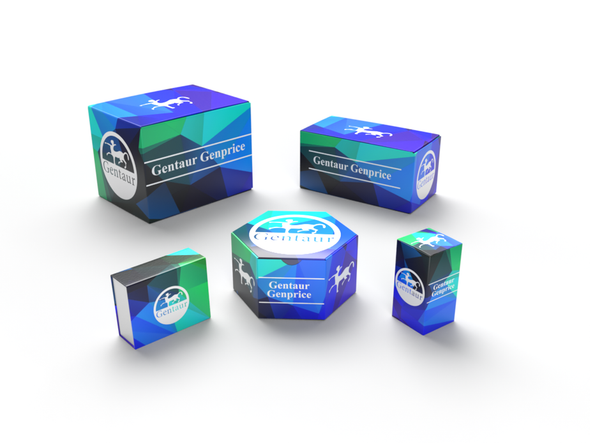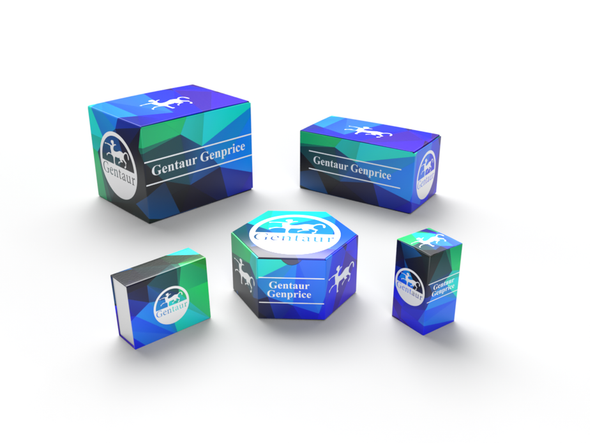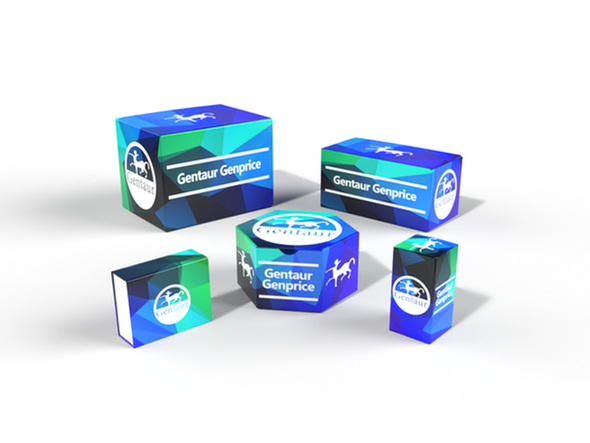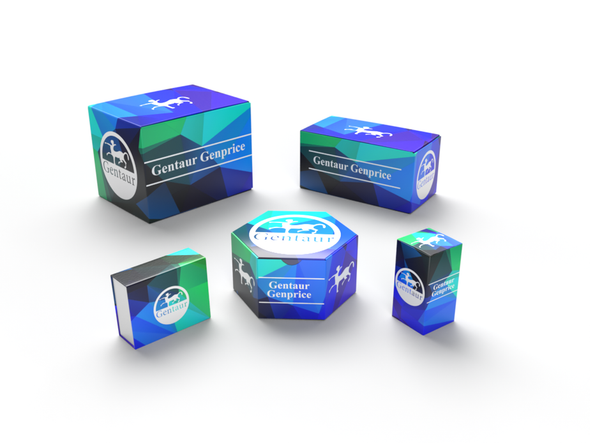209
Rabbit Anti-Human Endocan/ESM-1 Antibody | 102-PA44S/102-PA44
- SKU:
- 209-102-PA44S/209-102-PA44-GEN
Description
Rabbit Anti-Human Endocan/ESM-1 Antibody | 102-PA44S/102-PA44 | Gentaur UK, US & Europe Distribution
Species: Anti-Human
Host / biotech: Rabbit
Comment: N/A
Label: N/A
Clone / Antibody feature: Rabbit IgG
Subcategory: Polyclonal Antibody
Category: Antibody
Synonyms: Endocan, ESM1
Isotype: N/A
Application: WB, IF
Detection Range: Western Blot: Use 1-5 µg/ml
Species Reactivity/Cross reactivity: Human
Antigen: Recombinant human ESM-1 (RT #300-062)
Description: Endocan, also known as endothelial cell specific molecule1 (ESM1), is a secreted cysteine-rich dermatan sulfate (DS) proteoglycan primarily expressed by endothelial cells within the vascular capillary network in kidney and in the alveolar walls of the lung. Endocan expression has also been detected in different epithelia and in adipocytes. The expression of endocan is upregulated by TNFα, IL1β, or lipopolysaccharide and downregulated by IFNγ. The human Endocan gene encodes a 184 amino acid (aa) residues precursor protein with a 19 aa hydrophobic signal peptide and a 165 aa mature region with 18 Cysteine residues. The DS chain is covalently attached to serine 137. Endocan has been shown to bind CD11a/CD18 integrin (also known as lymphocyte functionassociated antigen1, LFA1) on human lymphocytes, monocytes and Jurkat cells, inhibiting its binding to ICAM-1 and reducing LFA1-mediated leukocyte activation. Endocan binds via its DS chain to hepatocyte growth factor (HGF) to enhance HGF mitogenic activity. Genetically engineered cells overexpressing endocan has been shown to induce tumor formation, suggesting that Endocan may be involved in the pathophysiology of tumor growth in vivo. Circulating Endocan can be detected in the serum from healthy subjects. In patients with lung cancer or acute and severe sepsis, elevated Endocan concentrations have been reported.
Purity Confirmation: N/A
Endotoxin: N/A
Formulation: lyophilized
Storage Handling Stability: The lyophilized antibody is stable for at least 2 years at -20°C. After sterile reconstitution the antibody is stable at 2-8°C for up to 6 months. Frozen aliquots are stable for at least 6 months when stored at -20°C. Addition of a carrier protein or 50% glycerol is recommended for frozen aliquots.
Reconstituation: Centrifuge vial prior to opening. Reconstitute in sterile water to a concentration of 0.1-1.0 mg/ml.
Molecular Weight: N/A
Lenght (aa): N/A
Protein Sequence: N/A
NCBI Gene ID: 11082








![Recombinant Human Endocan/ESM-1 Protein [Insect cells] Recombinant Human Endocan/ESM-1 Protein [Insect cells]](https://cdn11.bigcommerce.com/s-1rdwiq712m/images/stencil/590x590/products/525616/531452/gentaur-genprice__04902.1663435466__38299.1663436130__28135.1663587035.png?c=1)

